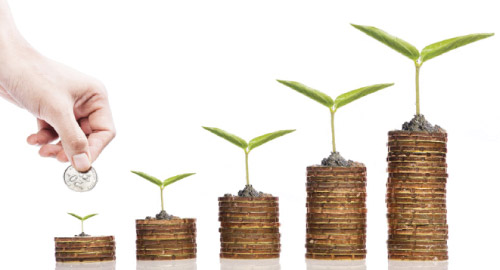The knotty issue of climate finance
by Obi Anyadike
The countries most vulnerable to climate change are among the poorest
and least able to respond. How to resolve that dilemma and help these
places adapt to a warming world remains among the knottiest problems
facing climate financing.
The good news is that identifying those most in need - step one - is
now a good deal easier thanks to a global league table developed by the
University of Notre Dame.
The Notre Dame Global Adaptation Index (ND-GAIN) measures a country's
vulnerability in relation to its ability to cope with climate change.
It calculates exposure to climate stress (for example a reliance on
agriculture), sensitivity to the impact of climate shocks and adaptive
capacity. It then scores a country's readiness - defining that in terms
of a willingness to leverage its economic, governance and social
resources to reduce climate risk.
|

- gcfreadinessprogramme.org |
According to the index, the world's five worst performers are
Eritrea, Chad, Central African Republic, Sudan and the Democratic
Republic of the Congo. By comparison, the over-achievers - and you'd
guess at least a couple of them - are New Zealand, Norway, Denmark, the
United Kingdom and Germany, in that order.
Paris summit
One of the important outcomes of the Paris climate summit in December
was the recognition that reducing greenhouse gasses is not enough.
Adaptation - how to live with a warming world - is now also accepted as
key, and there is a greater realisation that poorer countries will need
support to help achieve that. Paris affirmed the financing target of
US$100 billion a year from public and private sources by 2020. A
game-changer could also be the Green Climate Fund, which will devote 50
percent of all its funding to adaptation, which has historically been
overshadowed by spending on mitigation projects like renewable energy.
"Paris was wonderful, but what's really important now is what happens on
the ground," said Koko Warner, of the United Nations University's
Institute for Environment and Human Security. "The true yardstick of
success is in these highly vulnerable countries."
Money alone will not be enough to build climate security. "The
question of access [to financing] is not a simple answer as it concerns
multiple challenges including technical capacity to develop bankable
proposals, [tackle the] knowledge and capacity gaps and provide access
to resources needed to do the necessary feasibility studies," Barbara
Buchner of the Climate Policy Initiative, said.
"We need to find ways to increase the absorptive capacity of
countries that need the funding the most, and harmonise investment
standards, transparency and governance issues," noted Warner. "We need
more nuance on how to deliver financing to really help the poor, to
unravel the knots around climate impact and livelihoods."
That needs to happen quickly, because the estimates are that the true
climate bill will be in the trillions rather than billions of dollars -
especially if the world cannot keep below two degrees Celsius of global
warming agreed in Paris.
"We know that public resources in all countries are stretched, and
that US$100 billion will not satisfy the needs on the ground," said
Buchner. "It is therefore essential that the US$100 billion be spent
wisely. If we can do this, much more private investment will flow."
There is no reliable data on the scale of private investment flowing
to adaptation projects. But, said Buchner, "private investment will be
key," and therefore "domestic policy signals are critically important
because all investors want to see impact, and value for money."
A business case is easily made for the mega alternative energy
initiatives - from solar to wind - sprouting across the globe.
But adaptation tends to be more granular and local rather than
immediately transformational.
While corporates may well hesitate to invest in the most vulnerable
countries, "it is important to remember that households and families [in
these countries] are also private investors," said Buchner.
Developing projects that help them access affordable, clean energy
and expand sustainable agriculture "can support economic development and
poverty alleviation as well as climate change," she added.
There is a gulf between genuine, community-appropriate adaptation
projects and private sector "green- washing" - good old-fashioned PR
spin. "But we can't turn our back on investments. We just need to demand
more from [the corporates]," she insisted.
- IRIN
|

